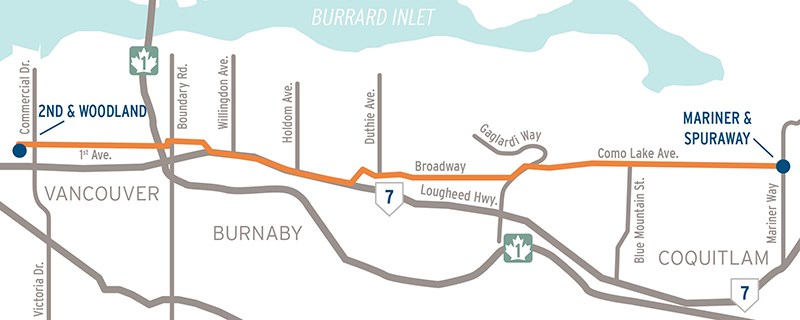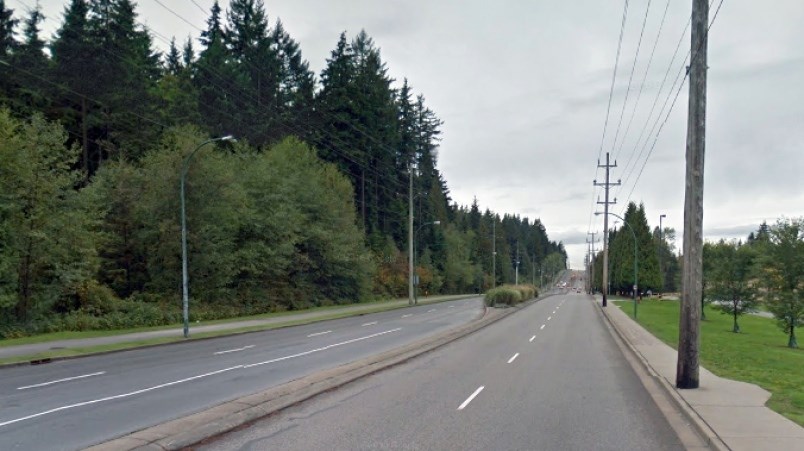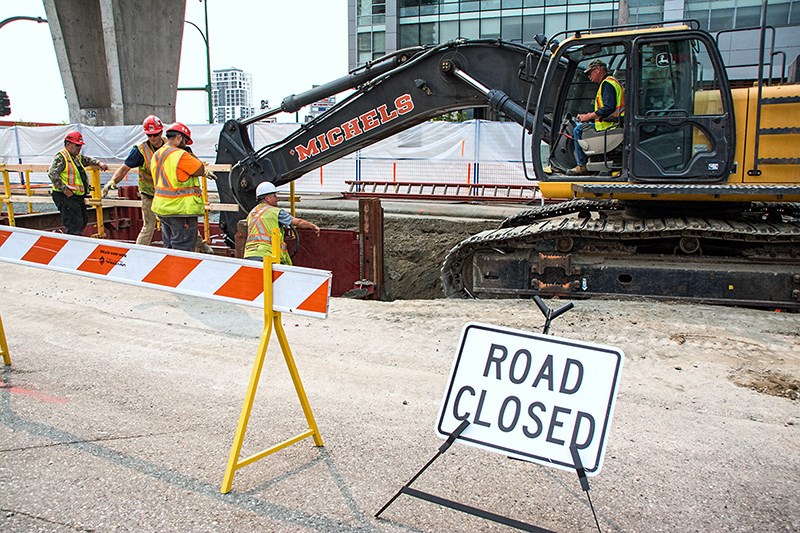A dispute between the city of Coquitlam and FortisBC over compensation for planned pipeline upgrades on Como Lake Avenue is headed to the the BC Utilities Commission (BCUC).
While FortisBC is offering a $300,000 community amenity contribution to the municipality for the work, the city said that is not enough given the disruptions that will be caused by the year-long construction project. In addition to the money, the municipality is asking the utility provider to remove the old 20-inch pipe when the new 30-inch pipe comes online and repave the road from curb to curb, not just the area that will be dug up.
"We don't want a patchwork of pavement left," said Mark Zaborniak, the city's manager of design and construction. "We want them to do a full restoration of the pavement."
He added that leaving the decommissioned pipe underground will add to the city's costs anytime it needs to do work under the road. While FortisBC intends to fill the old line with concrete, construction crews are still required to hand dig whenever they come close to the old pipe at significant expense, Zaborniak said, adding, "It would be a lot easer if they would just remove it."

The 5.5 km of pipe upgrades along Como Lake Avenue that are expected to get underway in March are just one phase in a larger 20-km project that began in Vancouver. Construction crews have been making their way through Burnaby along Lougheed Highway over the last year.
FortisBC said the upgrades are necessary to improve service for its 210,000 Lower Mainland customers, 30,000 of which are in Coquitlam.
In a response to the city's arguments to the BCUC, the utility provider said completely repaving Como Lake Avenue would add considerable expense to the project.
The "unnecessary work that would be born by [FortisBC] customers is substantial," adding between $600,000 and $4.6 million to the overall cost, the company said. The documents noted that the full removal of the old pipe would add $77.5 million to the project.
Last summer, Doug Stout, FortisBC's vice-president of market development and external relations, told The Tri-City News that removing the old line would also increase the construction impacts on residents.
"Removing it requires us to dig up twice as much road, adding months of inconvenience to the community," he said. "Doing so would also have significant costs."
He added that while the line is underground, the utility provider is still responsible for it and will remove sections if it interferes with municipal infrastructure.
Coquitlam city manager Peter Steblin criticized FortisBC for its stance during the negotiation process in July.
"In our opinion, [FortisBC does] not show enough credence to other uses," he said. "They are very focused on their needs and they are not as concerned as we believe they should be… with other utilities and other stakeholders present and in the future."
The BCUC is expected to adjudicate the matter later this year. Meanwhile, work on the upgrades is scheduled to begin in March.

TRAFFIC DISRUPTIONS
Traffic disruptions are expected when FortisBC begins upgrading its gas line along Coquitlam's Como Lake Avenue in March.
The utility provider said it intends to have one eastbound and one westbound lane open for the duration of the project, which will be completed by the end of the year.
"We understand it can be disruptive to have a major construction project in your neighbourhood, which is why our goal is to complete the work safely and as quickly as possible." said Doug Stout, vice-president of market development and external relations with FortisBC.
While lanes will be open in both directions, FortisBC said it intends to restrict westbound drivers between Linton and Robinson streets to local traffic, buses and emergency vehicles. A company spokesperson acknowledged, however, that there is little that could be done to stop drivers from accessing that section of the road.
According to the city, an average of 27,000 motorists use Como Lake Avenue every day.



